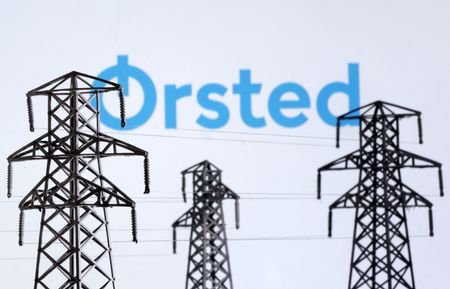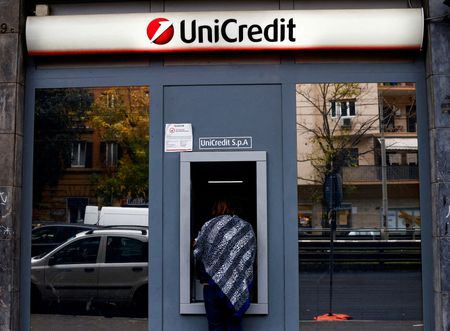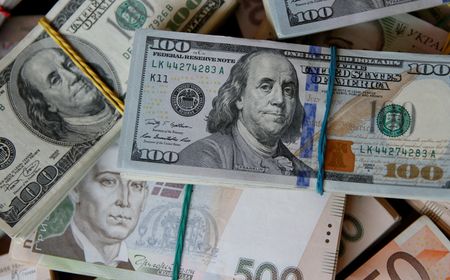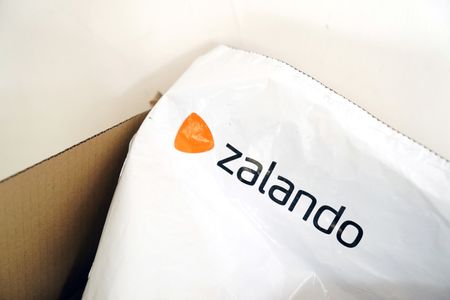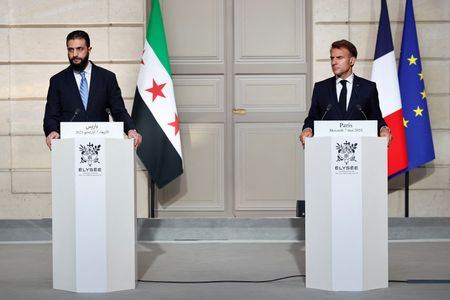By Stine Jacobsen and Louise Rasmussen
COPENHAGEN (Reuters) -Orsted will no longer build a major offshore wind farm in Britain, it said on Wednesday, citing a deteriorating global business environment for renewables and dealing a blow to UK ambitions to decarbonise its energy supplies.
The Danish company’s market value has fallen by around 80% from its 2021 peak as costs have risen, supply chains have been disrupted and U.S. President Donald Trump’s opposition to offshore wind has sapped investor confidence.
Orsted said cancelling Hornsea 4, one of the world’s largest offshore wind farms, would cost it up to 5.5 billion Danish crowns ($837.85 million) in the form of breakaway fees and write-downs, but that the value it would create had fallen.
“The combination of increased supply chain costs, higher interest rates, and increased execution risk has deteriorated the expected value creation of the project,” CEO Rasmus Errboe said in a statement.
Errboe, who was appointed CEO in January, faces the challenge of reviving investor confidence and slimming down the company to meet the new realities of the offshore wind industry.
“We believe the decision was needed to ensure we only bring forward assets which we are confident will deliver the value that we would like to see,” Errboe told reporters.
A final investment decision had not been made for the Hornsea 4 project.
Britain’s Energy Secretary Ed Miliband hoped the plans could be revived.
“We are still committed to working with Orsted to seek to make Hornsea 4 happen by 2030,” Miliband told reporters while on a visit to Norway.
He said Britain, which has a goal of developing 50 gigawatts of clean power capacity by 2030, has a big pipeline of renewables projects and is confident of meeting its target.
TRUMP SHARE IMPACT
Shares in Orsted rose 0.7% by 1045 GMT but are down by roughly a third since Trump’s election to a second term in November of last year.
“The cancellation of Hornsea 4 comes as a surprise but highlights stronger discipline under the new CEO,” Bernstein said in a research note. Barclays analysts called the cancellation an eye-opener.
While Trump has backed the continued use of fossil fuels, Britain, the biggest offshore wind market outside China and usually a stable growth region for Orsted, is striving to decarbonise its electricity to help curb global warming.
Orsted in September last year secured a 2.4 gigawatt contract for the Hornsea 4 project, located off the Yorkshire coast of northern England, in a British renewables power auction aimed at making the project more secure.
“We believe that the UK government is doing everything right in terms of the framework,” Errboe said.
The industry has struggled in recent years with rising costs, supply chain bottlenecks, higher interest rates, and more recently trade tensions.
Orsted said on Wednesday U.S. tariffs imposed on steel, aluminium and related products had increased costs for its two offshore projects in the U.S., resulting in an impairment of 1.2 billion crowns, but that construction would go ahead.
It also posted first-quarter profit before interest, tax, depreciation and amortisation, and excluding new partnerships and cancellation fees, of 8.6 billion Danish crowns for the January to March.
Analysts had on average expected an EBITDA of 7.88 billion crowns, a poll compiled by the company showed.
Orsted kept its 2025 outlook, excluding new partnerships and cancellation fees, unchanged, but the outlook did not include the cost of the Hornsea 4 cancellation.
($1 = 6.5644 Danish crowns)
(Reporting by Stine Jacobsen Louise Breusch Rasmussen in Copenhagen and Nora Buli in Oslo, editing by Terje Solsvik and Barbara Lewis)

